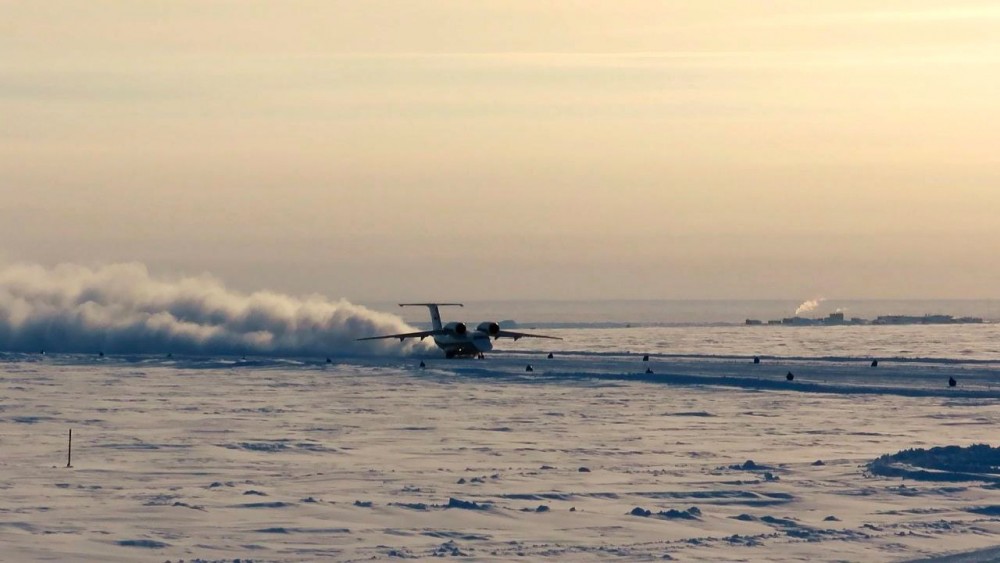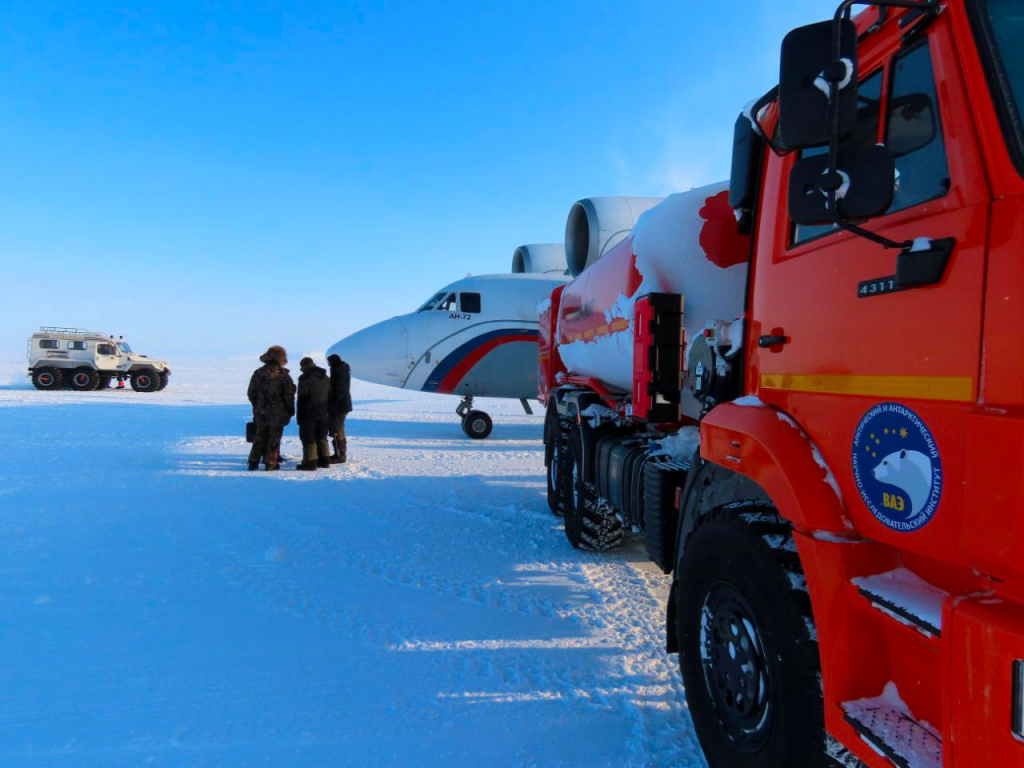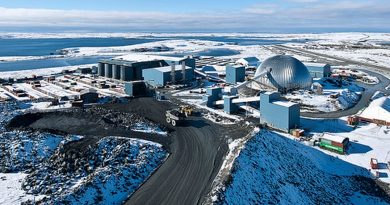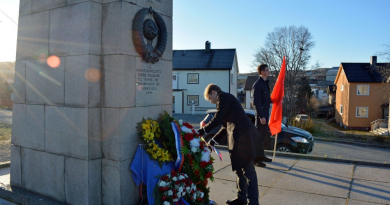Russia opens new airfield in remote Arctic archipelago Severnaya Zemlya

It is built to handle “any heavy cargo aircraft” and will serve primarily Arctic researchers and their drifting North Pole station.
A transport aircraft of the type An-72 this week successfully landed on the show-covered field and taxed towards a waiting team of ground personnel. The characteristic plane with engines installed above the wings was one of the first aircraft to use the runway located at 79° North.
According to the Russian Arctic and Antarctic Research Institute (AARI), the new runway is capable to handle not only light transport planes of the type An-72 and An-74, but “any class of cargo aircraft.”
It is located near the Cape Baranov ice base in Bolshevik island, archipelago of Severnaya Zemlya.
The primary purpose of the airfield, the researchers explain, is the delivery of supply and personnel to Severny Polyus, the drifting Arctic vessel that started its maiden voyage last fall.

The 83 meter long “Severny Polyus” in the beginning of September 2022 left the Admiralty Yard in St.Petersburg and set course for Murmansk. In the morning of the 2nd of October, it moored to an ice floe located north of the New Siberian Islands and started drifting towards the Greenland Sea. The vessel is built for two-years long autonomous drifting in polar sea-ice and is hailed as key instrument in Russian Arctic research.
According to Russian research director Aleksandr Makarov, the Baranov ice base now becomes a key supply center for Russian Arctic expeditions.
“The new runway will be a key link in the system of supply and personnel rotation for high north expeditions. Transport planes with goods and personnel will fly to the Baranov Ice Base and and further deliveries to the drifting [Severny Polyus] station or expedition vessel can be undertaken with aircraft of helicopters,” he says in a comment.
‘Complicated operation’
A first rotation of crew on the Severny Polyus is currently under preparation. Six members of the ship crew and four researchers will be replaced. The operation will be made with two Mi-8 helicopters. “It is a pretty complicated operation because the expedition vessel is situated on the list of the helicopters’ range,” Makarov says.
The Baranov ice base first opened in 1986 and was then abandoned in 1996. It reopened in 2013. A research crew on site is engaged in a wide range of Arctic studies including weather forecasting, air-, sea- and ice research, as well as medical and biological, and permafrost research.
The reopening of the ice base came as the crew from the North Pole-40 research station in 2013 hastily had to evacuate the ice floe on which is was based and move personnel and equipment to land-based facilities. They chose the abandoned premises of the Baranov base, and the station has since been in operation.
Related stories from around the North:
Canada: Potential Canadian Northern Corridor would present unique security challenges and opportunities, say researchers, Eye on the Arctic
Norway: Thawing permafrost melts ground under homes and around Global Seed Vault in Svalbard, The Independent Barents Observer
Russia: 30–50% of critical northern infrastructure could be at high risk by 2050 due to warming, says study, Eye on the Arctic
United States: U.S. Navy to build airport infrastructure in North Norway to meet upped Russian submarine presence, The Independent Barents Observer



